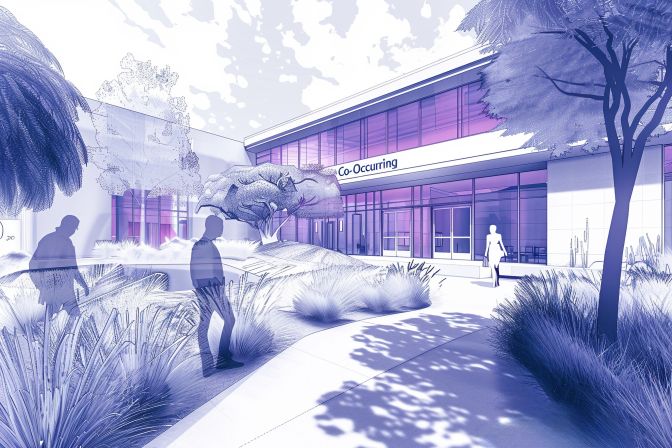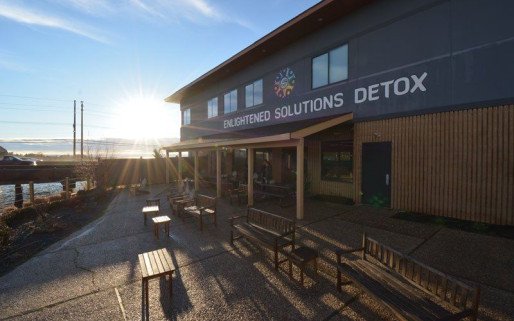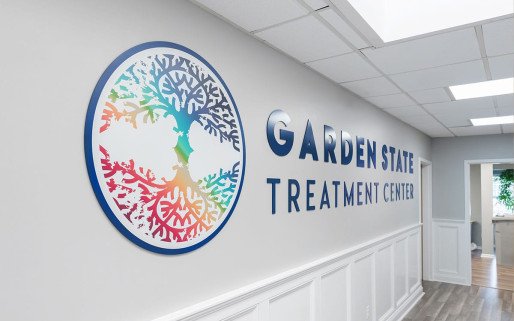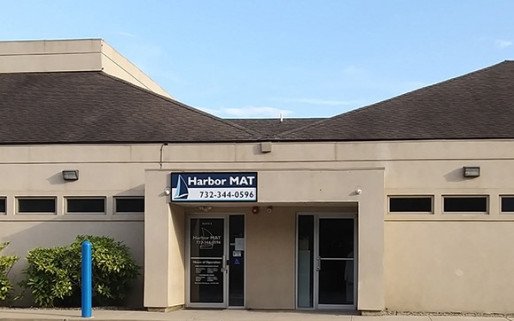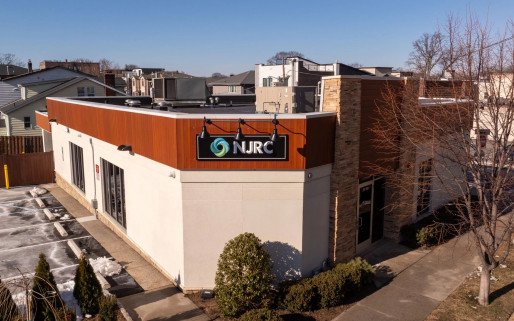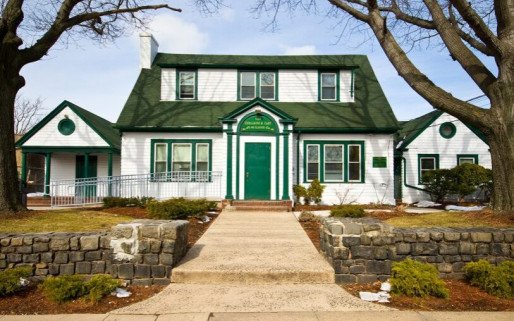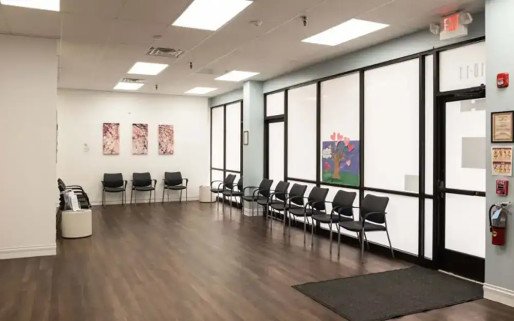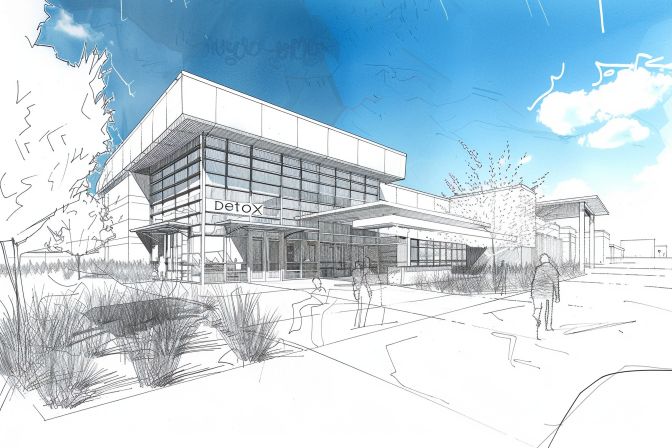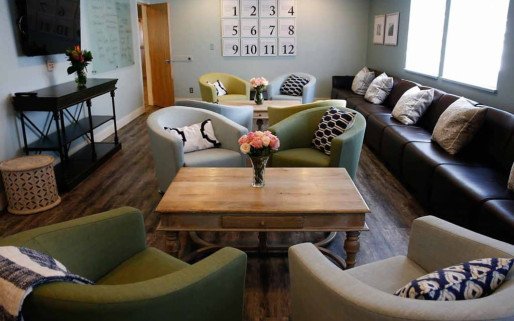Rehab in New Jersey
New Jersey is known for its history, coastal towns, and natural landscapes, meaning that the state’s rehab centers can offer various settings and environments for people beginning or continuing their recovery journey. Services available in New Jersey include detox programs, outpatient treatment programs, and inpatient rehab.
People can access expert professional support within these services, including a range of individual and group therapies, medications, and holistic approaches. Many rehabs offer a variety of recreational activities to support treatment, including outdoor activities, yoga, and creative activities.
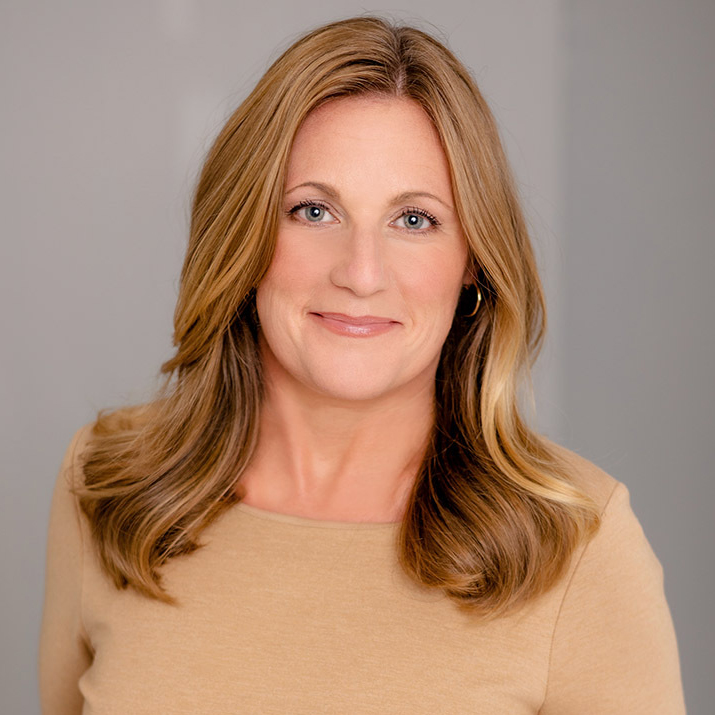
Medical advisor
LCSW, LCADC, CCS
Choosing the right rehab
The first and most vital step towards recovery from substance addiction is deciding you need rehab treatment. However, it can be difficult and overwhelming when trying to choose the right rehab option that meets your needs.
Below, you will find some crucial criteria you should consider when choosing a rehab center that best meets your unique requirements.
Dual diagnosis treatment
Co-occurring conditions, also known as a dual diagnosis, are mental health conditions or disorders that are present alongside a substance use disorder. Co-occurring disorders can often exacerbate the symptoms of one another, and it is not always possible to identify which one has caused the other.
For example, someone suffering from major depressive disorder may turn to alcohol as a way of self-medicating, or someone taking prescribed benzodiazepines for managing anxiety may start to abuse their medication.
Co-occurring conditions can be difficult to manage effectively, and treatment requires an integrated approach. If you have a dual diagnosis, you should make sure the rehab center can treat both effectively.
Type of substance addiction
While many rehab centers have treatment programs designed to treat various substance use disorders, others specialize in individual substance addiction treatment. While both are good options, choosing a rehab dedicated to treating your form of SUD will provide a more focused approach.
Common substances treated by most rehab centers include:
- Alcohol
- Benzodiazepines
- Heroin
- Cannibis
- Methamphetamines
- Opioids
- Prescription drugs
If you have a polysubstance use disorder (e.g., cocaine and alcohol), you may require a more tailored treatment plan that some rehab centers won’t be equipped to provide. This makes it vital that you check the rehab center can effectively treat your form of SUD.
Rehab and treatment options
There are multiple stages to a substance use disorder, as well as different levels of severity. This means that various treatment approaches and different levels of care need to be employed for each stage to match the individual’s additional needs.
The most frequently used levels of treatment include:
Detox
Detoxification is a common part of recovery for most substance use disorders. Detox centers are medically supervised environments for people to safely go through the withdrawal process. Certain substances, such as opioids or alcohol, can cause uncomfortable and occasionally life-threatening withdrawal symptoms, which often lead to individuals relapsing back to substance use. This is why detox is an important step in the recovery process, and a medically supervised setting can help ensure individuals are comfortable and safe, in turn reducing the risk of relapse.
Residential care
Residential care is best suited for those who require round-the-clock care. Individuals attending a residential rehab will typically partake in a 30-day treatment program, incorporating various forms of counseling and talk therapies, as well as any drug monitoring required.
Outpatient
Outpatient programs are designed for people who have personal obligations that hinder them from attending residential care, as well as those moving on from residential care but who still require support.
Intensive outpatient programs (IOP)
IOPs are designed for those who require high levels of care but cannot attend residential care. IOPs will require more dedicated time from individuals, typically for a few hours a day, three to five days a week.
Sober living and transitional housing
Sober living and transitional homes offer an environment free from triggers and temptations, as those who have been through treatment prepare to manage full-time recovery outside of rehab. They also provide a safe space for those attending outpatient programs who are exposed to substance use at home.
Substance use disorders in New Jersey
New Jersey’s substance use disorder rate is lower than the national and Northeast averages. However, some drugs are becoming increasingly prevalent.[1]
Substance misuse
The rate of illicit drug use among the 12-17 age group stands at 6.76%, below the national average of 7.09% and slightly lower than the Northeast region’s rate of 7.94%. For those over 18, New Jersey’s drug use rate is 13.69%, below both the national average of 15.03% and the Northeast’s rate of 16.70%.[1]
Marijuana misuse
Marijuana use among the 12-17 age range stands at 8.13%, again below the national average of 10.47% and the Northeast average of 10.70%. For adults over 18, the usage rate in New Jersey is 17.16%, while the national rate is 19.59% and the Northeast’s is 21.11%.[1]
28.12% of the 12-17 age group in New Jersey perceive great risk in smoking marijuana once a month, higher than the Northeast average of 22.58% and closer to the national perception of 23.26%. In the 18+ category, 24.78% in New Jersey perceive a great risk of marijuana use, compared to 19.82% in the Northeast and 21.42% nationally.[1]
Cocaine misuse
Cocaine use for the 12-17 age group is not listed in New Jersey. For the 18+ population, the rate stands at 1.69%, lower than the national average of 1.86% and the Northeast’s rate of 2.22%.[1]
Regarding the perception of great risk from using cocaine once a month, 49.69% of the 12-17-year-olds in New Jersey perceive great danger, slightly lower than the national perception of 50.73% and higher than the Northeast’s 48.91%. For the 18+ group, 68.33% in New Jersey perceive great risk, slightly higher than the national rate of 67.78% and the Northeast’s rate of 65.18%.[1]
Heroin misuse
The heroin misuse data shows a use rate of 0.16% for the 12-17 age interval, below the Northeast region’s rate of 0.22% and the national average of 0.20%. Individuals aged 18 and over have a heroin misuse rate of 0.80%, considerably higher than the national average and the Northeast’s 0.57% rate.
60.96% of the 12-17-year-olds in New Jersey perceive great risk from trying heroin, compared to the national perception of 58.72% and the Northeast’s 58.71%. In the 18+ category, 86.24% perceive great risk, whereas the national rate is 84.47%, and the Northeast’s rate is 84.26%.[1]
Methamphetamine misuse
Methamphetamine misuse in New Jersey stands at 0.10% in the 12-17 age range, which is consistent with the Northeast region’s rate of 0.10% and below the national average of 0.14%. Adults over 18 have a 0.88% use rate, higher than the national average of 0.99% and the Northeast’s rate of 0.69%.[1]
Prescription meds and opioid misuse
The misuse of prescription pain relievers among people 12-17 is at 2.06%, whereas the national average is 1.91% and the Northeast’s is 2.12%. The 18+ age group sees a 3.31% consumption rate closer to the national average of 3.24% and the Northeast average of 3.33%.[1]
Teenagers in the 12-17 category have an opioid misuse rate of 2.08%, higher than the national average of 1.91% but below the Northeast average of 2.12%. Adults over 18 stand at 3.30% for opioid misuse, below the national average of 3.44% and the Northeast average of 3.48%.[1]
How much does rehab treatment cost in New Jersey?
In New Jersey, individual rehab treatment costs on average $56,570 for residential care and $1,701 for outpatient services. New Jersey’s residential treatment costs are higher than the national average of $43,446 before inflation adjustments.[2]
However, the average cost for outpatient rehab in New Jersey is much lower than the national average of $7,219. The entire detoxification process in the US costs $141,001 per individual after inflation adjustments.[2]
These rates reflect rehab costs without insurance cover. Most health insurance providers will cover the cost of addiction treatment as part of their plans and it is rare for those attending rehab to pay fees out-of-pocket.[2]
Signs you or a loved one may need rehab
The indicators of addiction can vary from mild to severe; some have an obvious and direct impact on daily life, and others may be subtle behavioral changes that can become damaging if left unchecked. The signs of addiction are also not uniform for everyone, and some people can hide or deny their problem so that no one spots it, sometimes even themselves.
Despite the nuances of symptoms from person to person, some warning signs are universal. These can include:
- Omitting personal responsibilities to use (e.g., not going to work in order to drink).
- Not being able to go 24 hours without using.
- Activities you once enjoyed are replaced with substance use.
- Lying about substance use or hiding it.
- Experiencing withdrawal symptoms when not using.
- Causing harm to yourself or others due to using substances and not stopping.
How does addiction affect everyday life?
Addiction and substance use often create ripple effects that disturb everyday life in some way. Over time, these ripples can turn into waves that severely disrupt all areas of an individual's life and those around them.
For example, someone with a gambling problem may begin to hide their losses from loved ones and start to struggle financially. If gambling behavior continues and finances aren’t taken care of, severe levels of debt are likely to occur, which can lead to stress, depression, and many other problems.
Furthermore, addiction can, and often does, affect the lives of everyone involved with the person suffering. It can cause unbearable strain on relationships, create rifts in family structures, ruin friendships, derail careers, and destroy all sense of self-worth.
Local government assistance in New Jersey
The New Jersey Government has a Division of Mental Health and Addiction Services (DMHAS) that oversees community-based behavioral health services to the people of New Jersey.
The DMHAS has also availed an online Addiction Services Treatment directory, publications, real-time data, and information on Opioid treatment, among other helpful resources for people dealing with addiction.
This division monitors substance abuse and Treatment services offered by different agencies in the state of New Jersey aimed at helping individuals suffering from alcohol or drug addiction.

Medical advisor
LCSW, LCADC, CCS
Physical effects of addiction
The majority of addiction symptoms appear as behavioral or psychological changes in a person. However, addiction to drugs or alcohol can cause many physical symptoms that can become life-threatening if substance abuse continues. Common physical effects of addiction include:
- Cardiovascular issues.
- Respiratory depression (prevalent in sedatives and opioids).
- Delirium tremens (alcohol).
- Nasal perfusion (snorting cocaine, etc.).
- Weight loss/gain.
- Fetal Alcohol Syndrome.
- Skin ulcers/lesions.
- Bruising/track marks.
- United States Government (2023, March 8). 2021 NSDUH: Model-Based Estimated Prevalence For States. SAMHSA Substance Abuse and Mental Health Service Administration. https://www.samhsa.gov/data/report/2021-nsduh-state-prevalence-estimates
- (n.d.). Average Cost of Drug Rehab. National Center for Drug Abuse Statistics. https://drugabusestatistics.org/cost-of-rehab/
- (n.d.). Drug Overdose Mortality by State. Centers for Disease Control and Prevention. https://www.cdc.gov/nchs/pressroom/sosmap/drug_poisoning_mortality/drug_poisoning.htm
- The State of New Jersey (n.d.). Dashboard. Office of the Chief State Medical Examiner. https://ocsme.nj.gov/Dashboard
- Heather Brown - Why Patients Choose Us For Addiction Treatment in Cherry Hill, N. (2023, March 28). Www.southjerseyrecovery.com. https://www.southjerseyrecovery.com/why-us

